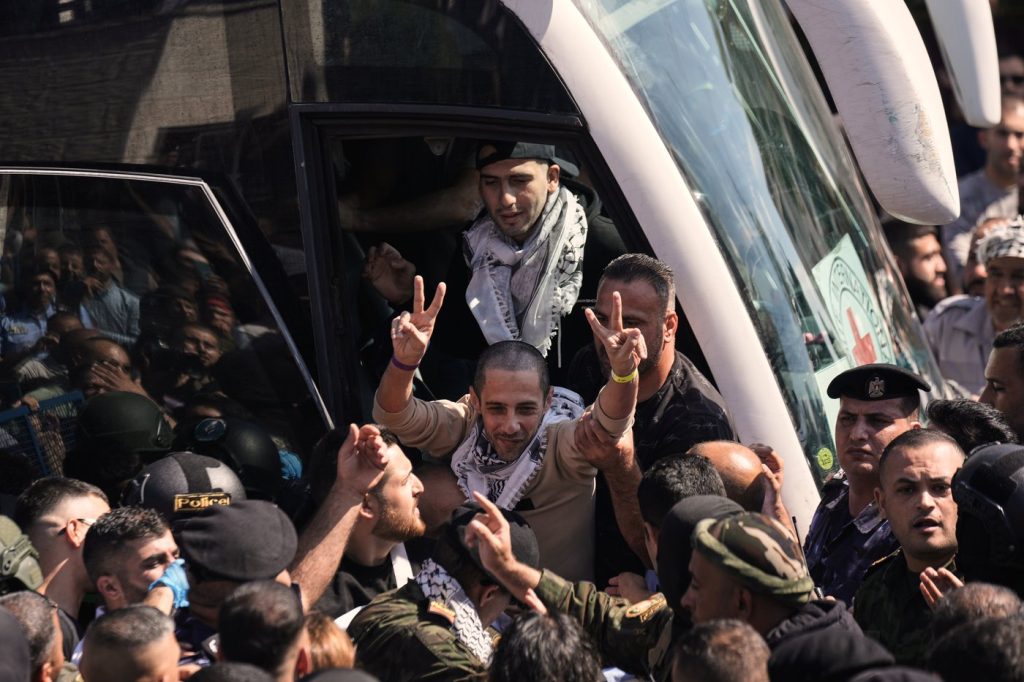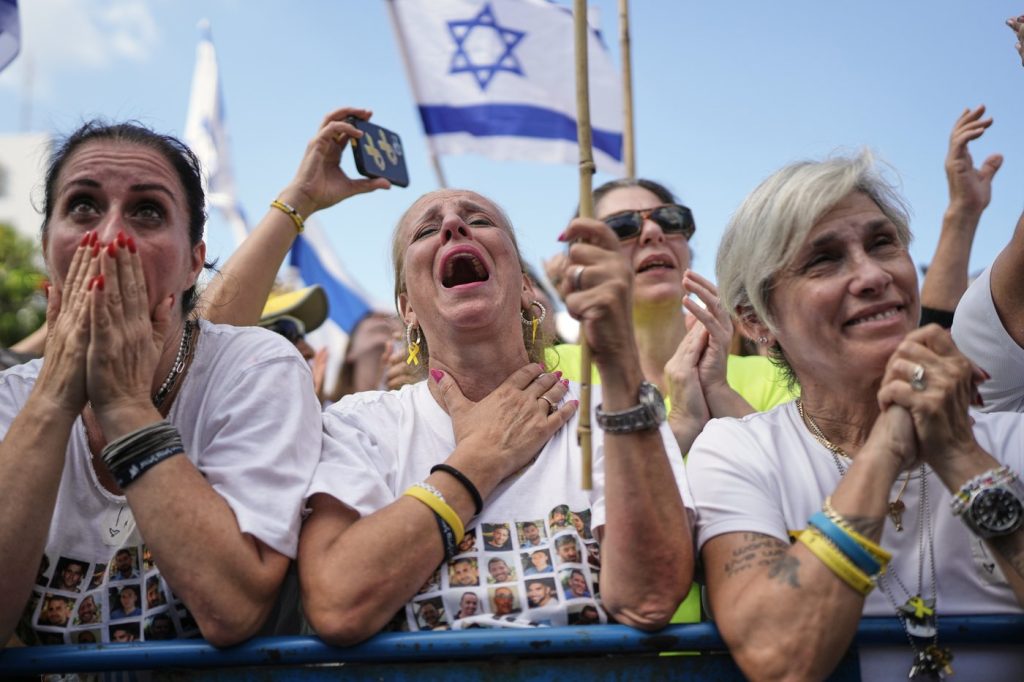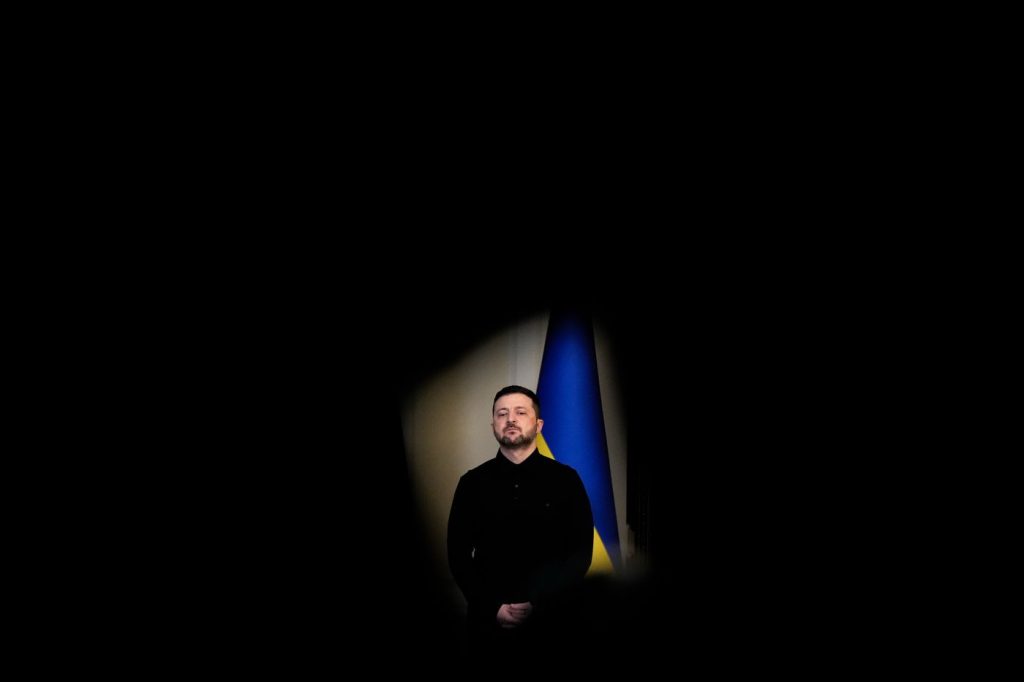BEITUNIA, West Bank (AP) - On Monday, celebrations erupted among Palestinians as Israel carried out the release of nearly 2,000 prisoners as part of a Gaza ceasefire agreement. This significant exchange was in return for the release of Israeli hostages freed by Hamas, reflecting the complex dynamics between the two sides.
Large crowds warmly welcomed the released prisoners in Beitunia, located in the Israeli-occupied West Bank, and in Khan Younis in Gaza. As they descended from International Committee of the Red Cross buses, they flashed V-for-victory signs and were adorned with traditional keffiyeh scarves, symbolizing their nationalist pride. Some prisoners were seen being lifted onto shoulders, while others appeared exhausted and sank into chairs.
Kamal Abu Shanab, a 51-year-old from Tulkarem in the West Bank, spoke about his harrowing journey, describing the suffering he endured during his imprisonment. After spending more than 18 years in prison, he lamented about the severe conditions, mentioning the tremendous weight loss of 139 pounds (59 kilograms). His family reflected on the drastic change in his appearance, expressing disbelief over how much he had changed.
Among those released were approximately 1,700 of the thousands of Palestinians detained by Israeli forces in Gaza during the two-year conflict. This group also included 250 Palestinians who had been sentenced for various offenses, most of which involved deadly attacks on Israelis dating back several decades. In a controversial move, 154 of the released prisoners were exiled to neighboring Egypt, with plans to resettle them in third countries. The remainder returned to their homes in East Jerusalem, the West Bank, and Gaza.
A Complex Response
The releases carry heavy implications for both Israelis and Palestinians. For Israelis, the decision to release convicted individuals, some responsible for attacks that resulted in civilian and military fatalities, is painful. Conversely, for Palestinians, the subject of prisoners holds significant political weight. Almost every Palestinian has a friend or family member who has been imprisoned by Israel, particularly young men. While Israel categorizes these prisoners as terrorists, many Palestinians view them as freedom fighters resisting what they see as a prolonged military occupation.
Conditions within Israeli prisons often become a focal point of contention, with numerous reports from the U.N. and various rights organizations highlighting issues such as isolation, beatings, and inadequate medical care. Israel refutes these claims and insists it adheres to proper prison standards.
In Khan Younis, a celebratory atmosphere gripped the crowd, with thousands cheering and firing in the air as the freed prisoners, dressed in gray jumpsuits, were welcomed before undergoing medical evaluations. The Israeli military detention of thousands occurred during the war through sweeping raids on shelters, hospitals, and checkpoints, often leading to family members being left in the dark about their loved ones' fates.
In the Wake of Warnings
The celebrations were not without risk, as Israeli authorities issued warnings against public celebrations associated with what they termed “terrorist organizations.” Despite these threats, Palestinians gathered at hills overlooking Ofer Prison. In response, Israeli forces deployed armored vehicles, releasing tear gas and rubber bullets to disperse the crowds.
According to lists distributed by Hamas, the detainees released included two women, six teenagers under 18, and around 30 men over the age of 60. The list of 250 convicted prisoners included 159 from Fatah, 63 from Hamas, and others from various groups, with many facing convictions from the early 2000s during the Second Intifada—a period marked by escalating violence amid failed peace negotiations. Hebrew military courts often conducted trials criticized for lacking fairness and due process, a point of contention echoed by human rights advocates.
Notably absent from the release were several high-profile prisoners, including Marwan Barghouti, who many regard as a possible successor to Palestinian President Mahmoud Abbas.
A list of critically observed prisoners released includes Raed Sheikh, convicted for killings of Israeli soldiers in 2000; Mahmoud Issa, who has spent more than three decades in prison for kidnapping and killing an Israeli officer; the Shamasneh brothers, sentenced for their involvement in a lethal stabbing incident; and Iyad Fatafta, who was convicted of murder in connection to an attack on American tourists.












